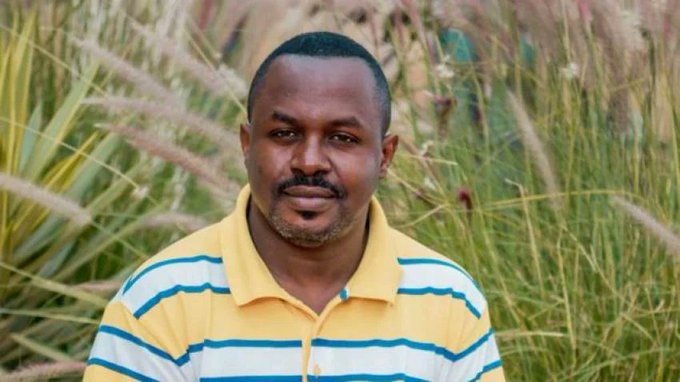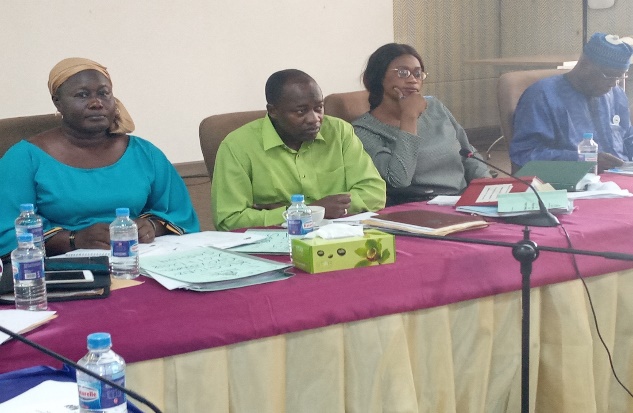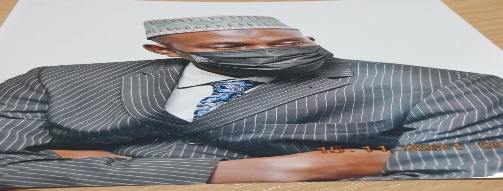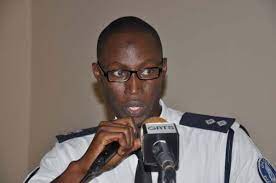Joint Statement by XX Civil Society Organizations and Press Associations
Rwandan authorities should allow an independent, impartial, and effective investigation, drawing on international expertise, into the death of John Williams Ntwali, a leading investigative journalist, XX civil society organizations and media associations said today. Rwanda’s international partners should press the authorities to allow and cooperate fully with such an investigation.
Ntwali’s family was informed of his death on January 19, 2023, when the police asked Ntwali’s brother to identify his body at the Kacyiru Hospital morgue. The police told the New Times that Ntwali died in a motorbike accident in Kimihurura, Kigali, on January 18 at 2:50 a.m. However, two weeks after the alleged accident, Rwandan authorities have failed to provide a police report, the exact location of the alleged accident, any photo or video evidence, or detailed information on the others involved in it.
A journalist who saw Ntwali a day before his death told Voice of America that: “He looked cautious and switched off his phone before we started talking… He said phones could not be trusted. He told me that all the doors on which he knocked were closed but he was determined to face life. His death was so sudden.”
The opposition leader Victoire Ingabire also said that she had scheduled an interview with Ntwali for January 18, and that the messages she sent him remained unread until the next day, when she saw they had been opened. Ntwali was regularly threatened and attacked in pro-government media for his investigative reporting. In June 2022, he told Human Rights Watch:
I’m told that after CHOGM [the Commonwealth Heads of Government Meeting], they won’t play around with us anymore. I’ve been told five or six times. I receive phone calls from private numbers. Some [intelligence] people have come to my house twice to tell me. NISS [National Intelligence and Security Services] has told me: ‘If you don’t change your tone, after CHOGM, you’ll see what happens to you.’
Ntwali played a leading role in covering and bringing attention to the plight of Kangondo neighborhood residents, who are in a long-standing dispute with the authorities over land evictions. At the time, he told Al Jazeera: “I’m focused on justice, human rights, and advocacy… the three are risky here in Rwanda. But I’m committed…. Those who try to speak out, they are jailed – harassed, intimidated or jailed. Second, forced to flee their country. Three, some of them disappear in thin air. Or even, they die.”
Ntwali was also one of only a few journalists in Rwanda independently covering high profile, politicized trials of journalists, commentators and opposition members, and posting videos about their conditions in prison. In June 2022, he told Human Rights Watch about the torture wounds he had seen on some of these critics and opponents. Recently, he also published videos on his YouTube channel about people who had suspiciously “disappeared.” His last video, posted on January 17, was about the reported disappearance of a genocide survivor who had spoken out about being beaten by police officers in 2018.
Rwanda has an obligation, under international human rights law, to ensure an effective investigation into Ntwali’s death. The right to life is enshrined in the African Charter on Human and Peoples’ Rights, and according to the Declaration of Principles on Freedom of Expression and Access to Information in Africa, “States shall take effective legal and other measures to investigate, prosecute and punish perpetrators of attacks against journalists and other media practitioners, and ensure that victims have access to effective remedies.”
President Paul Kagame was named Chair-in-Office of the Commonwealth at the last Commonwealth Heads of Government Meeting, held in Kigali, Rwanda, in June 2022. The Chair-in-Office represents the Commonwealth at high-level international meetings and the Commonwealth Secretary-General’s conflict prevention and resolution work for a two-year period. In the Commonwealth Charter of 2013, member states reaffirmed their core values and principles, including upholding human rights, freedom of expression, the rule of law and the role of civil society.
The Commonwealth Principles on freedom of expression and the role of the media in good governance state that “Member states should act decisively to end impunity through impartial, prompt and effective investigations into all alleged cases of killings, attacks and ill-treatment of journalists and media workers, by prosecutions to bring the instigators and perpetrators of such crimes to justice and by the provision of effective redress for the victims.”
Rwandan authorities have consistently failed to ensure credible investigations into and accountability for suspicious deaths of political opponents or high-profile critics, such as Kizito Mihigo in February 2020. Therefore, regional and international experts, such as the United Nations Special Rapporteur on extrajudicial, summary or arbitrary executions or the African Commission on Human and Peoples’ Rights working group on the death penalty, extrajudicial, summary or arbitrary killings and enforced disappearances in Africa should be involved in the investigation. An effective investigation needs to be independent, impartial, thorough, and transparent, conducted in full compliance with the Revised United Nations Manual on the Effective Prevention and Investigation of Extra-legal, Arbitrary and Summary Executions (The Minnesota Protocol on the Investigation of Potentially Unlawful Death).
We, the undersigned organizations, urge Rwanda’s international partners, including the Commonwealth, to stand by their stated commitment to media freedom and to call on Rwanda to allow an effective, independent and prompt investigation into the suspicious death of John Williams Ntwali.
The groups are:
Amnesty International
Committee to Protect Journalists
Commonwealth Human Rights Initiative
Human Rights Watch





